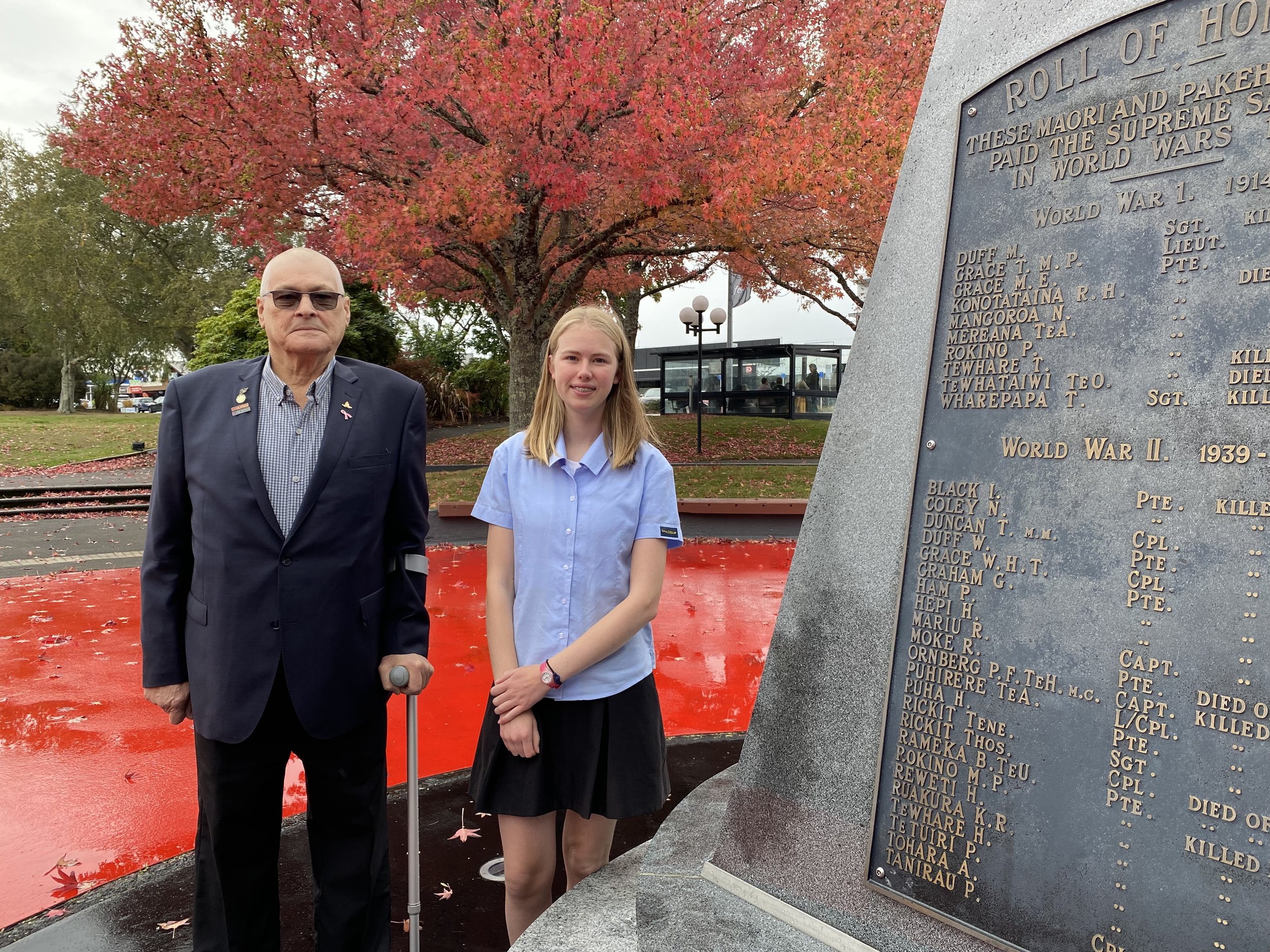NZ’s place in the world
By Angela Schur, Tauhara College
Taupō RSA board member and Education trustee Barry Calder with this year’s Anzac Day Essay Competition winner Angela Schur. Photo / Dan Hutchinson.
This is the 17th year that I have been alive for ANZAC Day.
And what ANZAC Day represents has never been more relevant to me.
The situation in Ukraine, Gaza, and other places in the world, has made me think about understanding the devastation of war, and the bravery and sacrifices of soldiers encountering the brutality face to face.
Today, we acknowledge what has happened in the past, which serves as a reminder for what we can hope to avoid in the future.
This is why the RSA writing competition topic seems so relevant: “In 2025, does New Zealand have the capability to protect its citizens amid the rising geographical and political tensions?”
One way of protecting New Zealand is by military means.
Another element of strength is by using diplomacy and developing relationships with other countries: in World War 1, as a part of the British Empire at the time, when Britain declared war, we automatically joined them. However, in World War 2, the decision was ours - and our ties to Britain’s economy, defence, and history impacted our decision to join the Allies. Today, we are under the same monarchy, have a free trade agreement, and are both in the Commonwealth.
We are also close to Australia: both on the map and in terms of political values. We are major trading and economic partners, and are both involved in the Pacific region, where issues such as climate change pose a shared risk.
As well as Australia and Britain, our many free trade agreements include China and the EU. We are also a member of the United Nations, Five Power Defence Arrangements, and while not a member, we are a partner of NATO.
New Zealand’s willingness to step in and help is also a reason we are respected. Recently, New Zealand offered assistance in response to the earthquake that struck Myanmar and Thailand. As well as building relationships worldwide, this shows that despite being far from the destruction, we still want to help those in need and do the right thing.
‘Doing the right thing’, both now and in the past, often means ‘sticking to our beliefs’. New Zealand has made decisions not just because of our relationships with other countries, but also because of our own views. For example, New Zealand currently provides training to the Ukrainian Army in its fight against Russia.
I have never seen war firsthand, and I do not want to grow up in a world where I will have to. I hope that as we move into the future, we never repeat or forget what happened in the past.
ANZAC day is a day of remembrance and honour for those who served in wars, conflicts, and peacekeeping. I also consider it a day to be grateful for peace and security, and the sacrifices made that led to our position in the world today.
In conclusion, my answer to the essay topic is yes. Here in 2025, it is not just the military but our strong international relationships, willingness to help, and sticking to our beliefs that assists New Zealand to protect its citizens as tensions rise throughout the world.
Every year high school students are invited to submit an essay on a particular theme, with the winning entry receiving $500. The author reads it out at the Civic Service in Taupō on Anzac Day.
